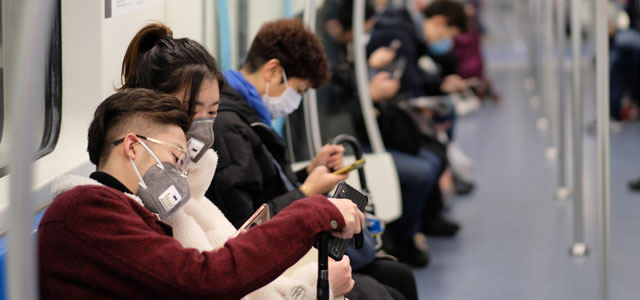Novel coronavirus impact on business beginning to show

Since the first case of novel coronavirus was reported in Wuhan, China on 31 December, more than 20,000 people have been infected across Asia, and more than 420 people have died, all but two in Mainland China.
There have been reported cases in 13 Asian countries, as well as in Australia, the UK, continental Europe, the United States and Canada.
While the World Health Organisations and governments mobilise their own responses and travel restrictions, businesses should be turning to their own pandemic contingency plans and assessing the exposure to their staff, customers, supply chains and business models.
Before the outbreak of the novel coronavirus, the World Economic Forum's Global Risks Report 2020 had highlighted the risk of a pandemic.
"Progress against pandemics is being undermined by vaccine hesitancy and drug resistance, making it increasingly difficult to land the final blow against some of humanity's biggest killers," it stated. "As existing health risks resurge and new ones emerge, humanity's past successes in overcoming health challenges are no guarantee of future results."
The impact on the economy and business is already showing. In Macau, where there has been 10 reported cases, it has been announced all casinos will be shut down for two weeks in an effort to contain the virus. The autonomous region is the world's largest gambling hub.
Economists at the credit rating agency Moodys, meanwhile, have said the shutdowns across China will have a "marked" impact on the economy, with consumer spending on transportation, retail, tourism and entertainment is expected to reduce.
"The amplified role of consumer demand as a driver of growth raises the risk that the economic dampening effect of the current coronavirus outbreak could be greater than in 2003," Moodys stated. "In addition, the fact that the epidemic broke out just ahead of the Lunar New Year, a period of very high seasonal consumption and travel, will exacerbate the economic impact."

Tourism in the south east Asia region will also to impacted, with the Tourism Authority of Thailand saying it expects two million fewer Chinese tourists in 2020 than in 2019, when 11 million visited. It also expects tourists from elsewhere to be deterred after reported cases in the country.
There are signs too of the geopolitical impact of such a pandemic. Tensions between China and Taiwan have only worsened with the latter's foreign ministry labelling China "vile" for restricting the island's access to the World Health Organisation during the outbreak. China denies the accusation, while Taiwan has also banned entry to foreign nationals who have visited China in the past 14 days.
Julia Graham, Airmic's Deputy CEO and Technical Director, says while some organisations are prepared to respond to a pandemic many are not since it is often viewed as low probability. As such, pandemic preparedness is typically understaffed and underbudgeted.
"Businesses should look at the virus through an enterprise risk-wide risk lens," Ms Graham says. "This is a team activity and a situation which demands cross function collaboration.
"Assess who you are responsible for, where people are and what can be done to keep them safe. Follow Government travel advice - failure to do so can limit the effectiveness of insurance."
Encouraging employees in at risk areas should be encouraged to work from home where realistic, while crisis management plans and teams should be polished and rehearsed. "Be ready to talk to employees and customers. Share that you are prepared and if you're not then shape up!"
